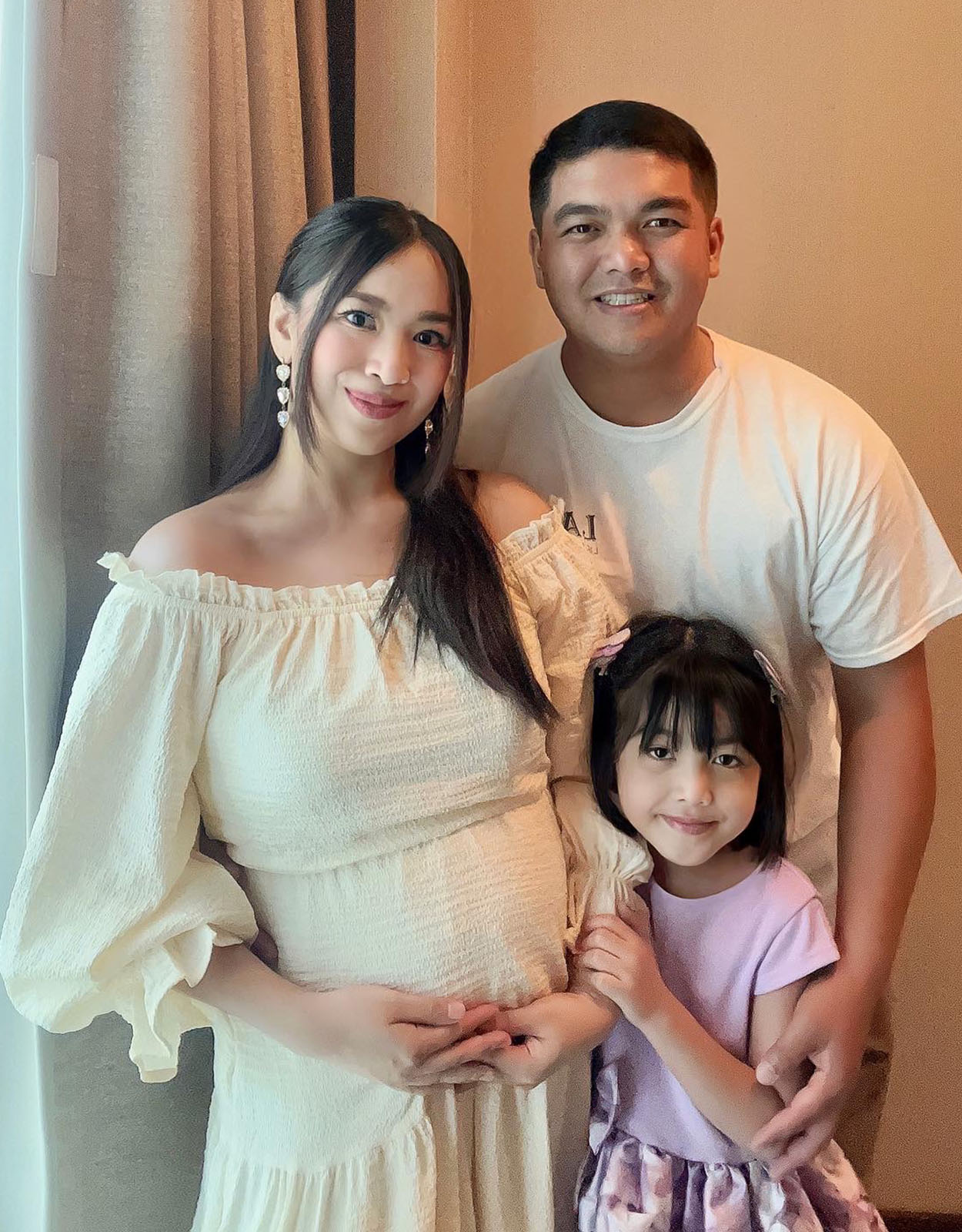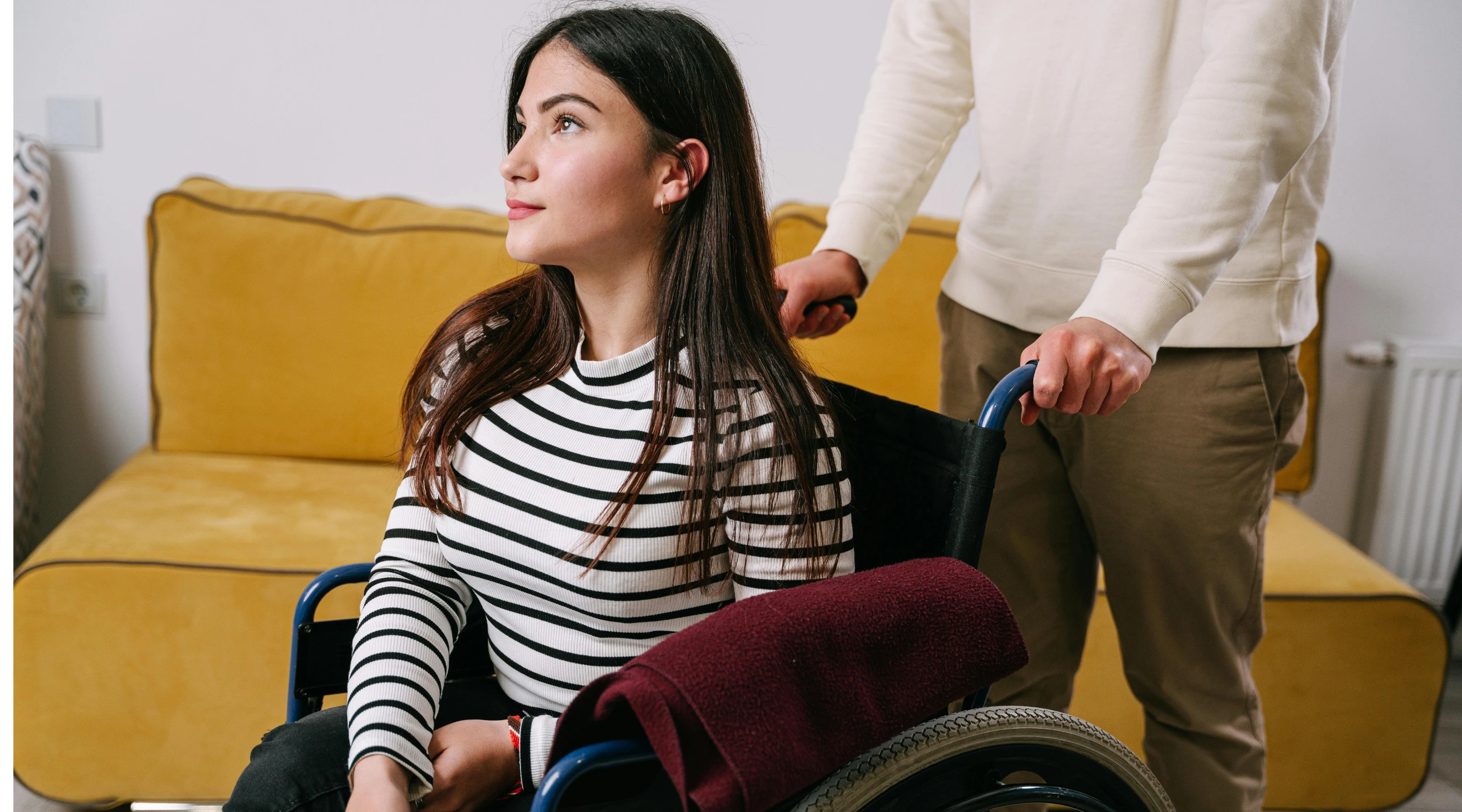Trishka Puno Samonte: A Mom’s Fight Against APAS and Birth Trauma
Trishka Puno Samonte shares her story on Modern Parenting to raise awareness of what Antiphospholipid Antibody Syndrome (APAS) is.
Pregnancy is a journey that can either end with joy or grief. But when two back-to-back pregnancies ended due to miscarriages, Trishka Puno Samonte opted to find a second opinion—as her instincts were telling her that it might be Antiphospholipid Antibody Syndrome (APAS).
After all, it didn’t hurt to get a second opinion.
With that, her consultation with fertility specialist Dr. Eileen Manalo shed light on what she had to do to keep Mikael, her now two-week-old son. Just like her first child, who was also an APAS baby. “When I first did the test, it was negative and many were telling me to just try again,” Trishka recalls.
“But, it was traumatic already for me the last time because I needed surgery—a DNC [dilation and curettage procedure],” she adds. “So, I asked for a second opinion. And it turns out, I was borderline APAS. The two miscarriages were already symptoms and my OB-GYNE told me she had to treat me like an APAS patient.”

What is Antiphospholipid Antibody Syndrome (APAS)?
When women become pregnant, their bodies recognize this and suppress their immune systems to accommodate the baby. Such is not the case when moms-to-be have Antiphospholipid Antibody Syndrome (APAS). This autoimmune condition is what doctors—specifically immunologists and OB-GYNES—recognize as “Hughes’ Syndrome.”
In Trishka’s case, her body perceived her baby as an “infection.”
“It showed on the ultrasounds. There were subchorionic hemorrhages or blood clots forming near the baby as if [my body was] trying to push the baby away,” Trishka describes. “To stop that, my OB-GYNE put me on Heparin—a blood thinner or an anti-coagulant. I had to inject myself twice a day, every 12 hours.”
According to Trishka, APAS is a syndrome that needed weekly monitoring and hands-on management. Besides the updates, she also took medicines like Metformin—a common medicine for diabetics—and various vitamins to help her keep her son. Her body also needed more medical interventions such as having Intravenous Immunoglobulin Therapy (IVIG) and steroids that would protect her baby and keep her body’s immune system from attacking it.
It was a struggle!
But this was a battle that had been happening since 2015 to 2016, Trishka clarifies. “It was alarming,” she adds. “I was having back-to-back miscarriages and I was 24 years old and newly married. My first miscarriage only made it to eight weeks. The second one was when I started getting paranoid because when I was checking myself, I was pretty healthy.”
Knowing that there was something wrong, but not knowing the cause behind it was a struggle. Overall, it was financially draining and emotionally taxing, which, Trishka reveals, depressed both her and her husband. “But my husband, who was taking his master’s in AIM [Asian Institute of Management], had to keep on going for me,” she acknowledges. “We both couldn’t be depressed at the same time.”
She adds, “He didn’t want us to feel that the world ended because of the miscarriages. And going through the treatments, it was so stressful that at some point I wanted to stop.”
But by then, Trishka knew, she had already gone too far with the treatments and interventions to stop now. “I had a problem and I wanted to solve it.”

Did it finally pay off?
Eventually, her efforts started to pay off when she became pregnant around January or February. But while sharing pregnancy news is usually a joyful affair, her experience and knowledge in APAS filled her with dread. “I was really crying because I was so scared,” she admits. “All these questions were popping off in my head. ‘How was this going to be?’ or ‘Is this going to push through?'”
But she managed to ignore those voices and questions in her head eventually—all thanks to the encouragement and validation that she received. While waiting for her scheduled consultations with both her OB-GYNE Dr. Manalo and Immunologist Dr. CJ Gloria, she overheard from other patients that there was a light at the end of the tunnel. APAS was not a life sentence; it was something that she could overcome.
“I heard so many success stories while waiting. It’s what kept me sane and sustained me throughout,” she confesses.
Besides keeping her OB-GYNE updated, she disciplined herself to stick to her gluten-free diet, while loading more on protein. “It was to make sure the baby met his average size and growth requirements per term,” she explains. “Plus, it was also helpful in managing my Polycystic Ovarian Syndrome (PCOS).”
But what’s a pregnant mom to do when cravings hit? Trishka recalls with a laugh how hard it was to ignore the usual gluten-rich comfort food but reaffirms that these are some of the sacrifices moms would gladly make for their unborn babies.
“It was so hard! I was craving burgers, cake, and the like. Thankfully, we’re Asian so I was still able to have rice! And since steak and meat didn’t provide enough protein, I had to drink a lot of protein shakes.”

To the loving village who gives their support
Because of the early intervention and support, Trishka expresses how relieved she was that hers was a manageable case, especially since other women have far worse manifestations of APAS. “Thankfully I didn’t experience being confined in the hospital because some do. And sometimes, I would have leading episodes, but it was always managed by my doctors.”
And while the doctors were away, the family came to play. It was a little confusing at first, Trishka reveals—since it was the family’s first-ever encounter with such a syndrome. But even so, everyone pitched in.
“I’m so thankful for my family because they really took over everything. Like, they knew the moment I was pregnant. And so, they took over all the responsibilities of my firstborn because I had to stay home,” she beams. “My husband, because it was the second time around and he knew how much I sacrificed, treated me like a princess.”
Even more so her mom! Trishka shares how she would accompany her to her appointments. Her mother would even remind her that although everyone had suggestions, it was best for her to listen to her doctors. She had to be a “good student” and listen to them, acknowledging that although she could “lose the baby,” it wasn’t to scare her. It was to remind her of the “reality of things.”
“I had these comments left the night, saying but you’re not even supposed to drink meds during pregnancy. But my mom was the one who would always remind me to listen to them. The immunologist and the OB-GYNE—they’re the experts; they know what’s good for you and your baby,” Trishka reaffirms.
Ultimately, it was the love and support from her family, Trishka believes, that helped her become more attentive to her body and bring Mikael into the world. “My main advice would be to have a strong support system because these people will push you to become stronger and they would help you. They would really keep you sane. They pray for you also,” she ends.
More stories about difficult pregnancies?
A Premature Baby: A Tale of Two Sisters
Saab Magalona’s Insights Reveal The Protective Mama In All Of Us
Empress Schuck-Guingona On Miscarriage: “I’m Still Not Sure How To Talk About It.”









